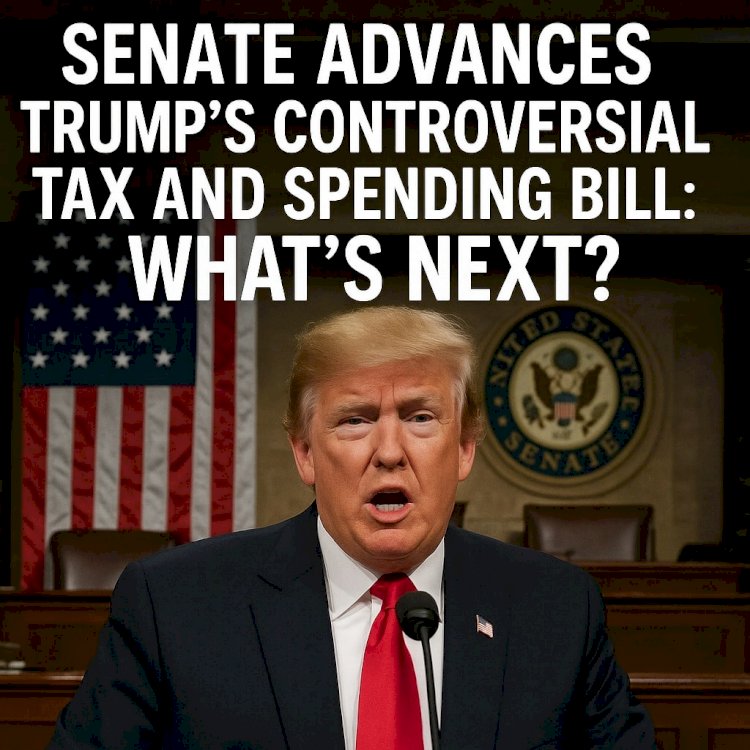Senate Advances Trump’s Controversial Tax and Spending Bill: What’s Next?

Washington, D.C. — June 29, 2025
The U.S. Senate has taken a major step forward by advancing President Donald Trump’s ambitious tax and spending package, known as the “One Big Beautiful Bill Act.” The Senate voted 51–49 on a procedural motion Saturday, clearing the way for a full debate and a potential final vote early next week.
GOP’s Bold Push Amid Internal Divisions
Spanning nearly 1,000 pages, the bill aims to permanently extend the 2017 tax cuts, eliminate taxes on tips and overtime, boost military and border security funding, and cut back on Medicaid and nutrition assistance programs. Despite party support, some Republicans expressed serious reservations—Senators Thom Tillis and Rand Paul voted against advancing the bill, citing concerns over the size of Medicaid cuts and the growing national debt. Senator Ron Johnson’s last-minute “yes” vote prevented a tie, avoiding the need for Vice President JD Vance to break it.
What’s Changed Since the House Version?
Several notable modifications have been made to the bill in the Senate:
-
SALT Deduction: The cap on state and local tax deductions was lowered from $40,000 to $10,000 for households earning up to $500,000 annually.
-
Medicaid Work Requirements: New work requirements for Medicaid recipients with children over age 14 were introduced, and some funding cuts were delayed to ease the impact.
-
Energy Policy: The Senate slowed the rollback of clean energy tax credits, maintaining incentives for geothermal, nuclear, and hydropower projects.
President Trump has called for swift passage of the bill by July 4, touting it as a boost to economic growth and job creation.
Opposition and Concerns Mount
Democrats remain firmly opposed, warning that the bill jeopardizes social safety nets and disproportionately benefits high earners. The Congressional Budget Office projects that the bill could increase the federal deficit by roughly $3.3 trillion compared to earlier versions, while reducing health insurance coverage for nearly 12 million people by 2034. Critics from outside politics, including tech industry leaders, have voiced worries about the bill’s impact on clean energy and electric vehicles.
What Happens Next?
Following the successful procedural vote, the Senate will enter a lengthy debate and amendment process, with a final vote anticipated soon. If the bill passes the Senate, it will return to the House for a final vote before heading to President Trump’s desk for signature.
This report reflects developments as of June 29, 2025.

 content-team
content-team 


















